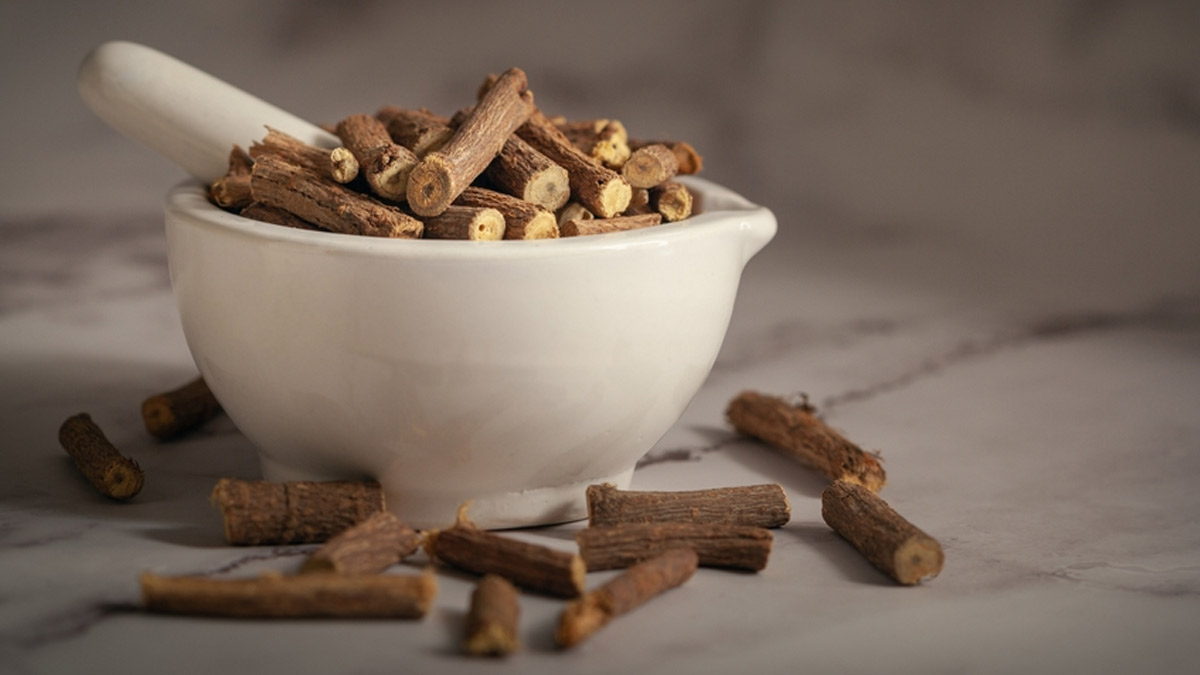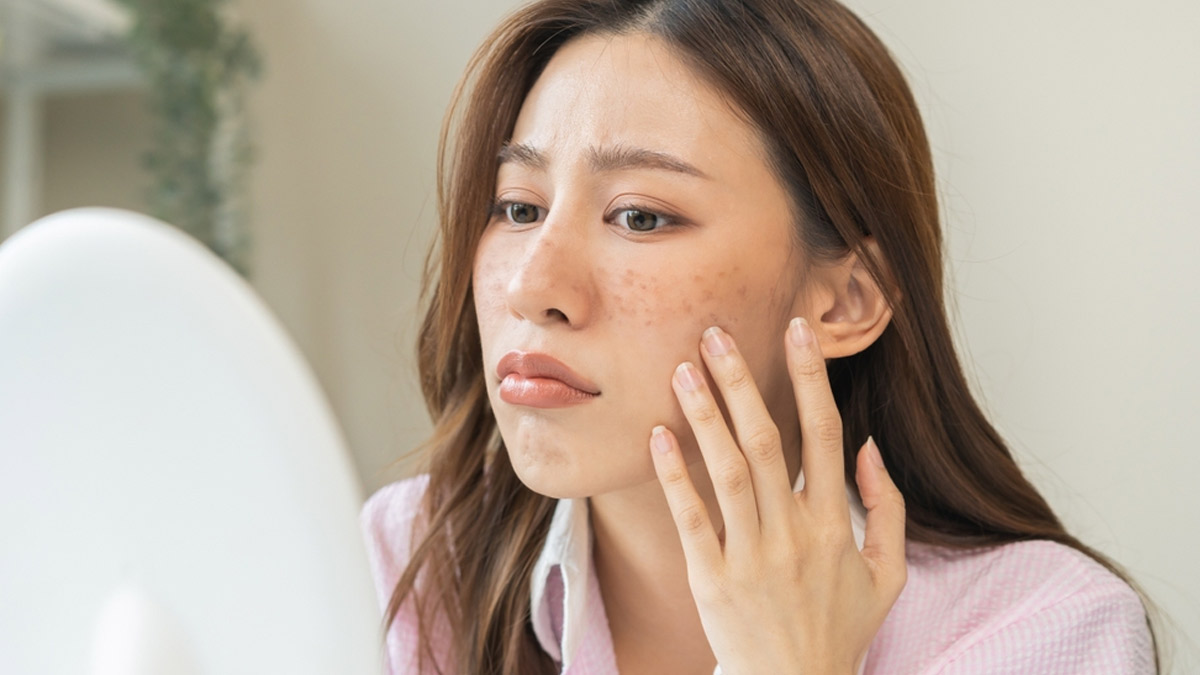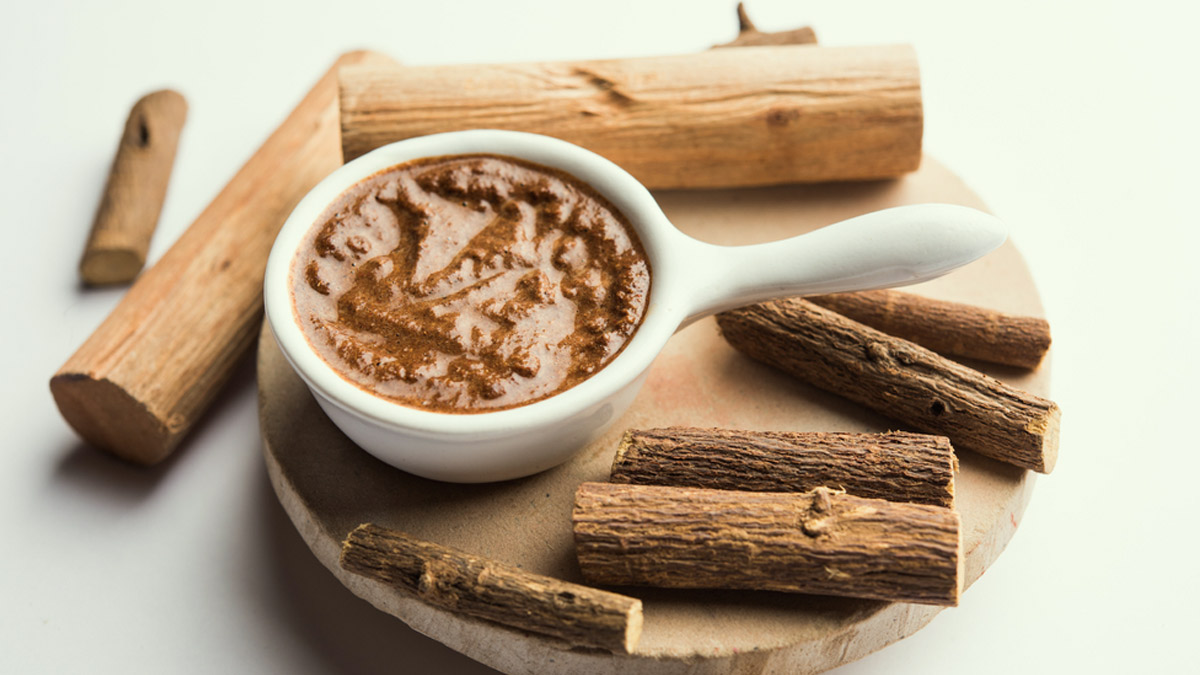
Most people deal with skin issues, such as dark spots, pigmentation, and uneven skin tone. While we often turn to various products and treatments, however, there are natural remedies that can help you combat these issues. One such ingredient that can help you achieve is mulethi or liquorice. We spoke to our expert Dr Ganesh Chaudhary, Bachelor of Ayurvedic Medicine and Surgery, PHC, Darbhanga, Bihar, who listed the benefits of mulethi in reducing dark spots and pigmentation.
Table of Content:-
According to the Journal of Cutaneous and Aesthetic Surgery, liquorice extract improves hyperpigmentation by dispersing melanin, inhibiting melanin biosynthesis, and suppressing cyclooxygenase activity, consequently reducing the production of free radicals. Its active compound, glabridin, helps to fade dark spots and even out skin tone by blocking the enzyme that triggers melanin production.
Benefits Of Mulethi For Your Skin Health
Dr Chaudhary listed the benefits of mulethi for skin health as follows:

Lightens Dark Spots
Mulethi helps fade existing dark spots and prevents the formation of new ones by reducing melanin production. As a result, you can achieve brighter and more even-toned skin.
Anti-inflammatory Properties
Mulethi possesses anti-inflammatory properties that soothe irritated skin and reduce redness. It helps calm inflamed skin conditions like acne, eczema, and rosacea, which can contribute to uneven skin tone and pigmentation.

Antioxidant Protection
Mulethi is rich in antioxidants that help protect the skin from free radical damage caused by environmental factors like pollution and UV radiation. By neutralising free radicals, mulethi helps prevent premature ageing and maintains skin health, promoting a more youthful complexion.
Ways To Use Mulethi For Skin Care
Here are four ways to use mulethi for skin care, as listed by the expert:

Mulethi Face Mask
You can prepare a DIY face mask by mixing mulethi powder with honey or yoghurt to create a thick paste. Apply the mask to cleansed skin and leave it on for 15-20 minutes before rinsing off with lukewarm water. Use this mask once or twice a week to brighten and even out your complexion.
Mulethi Infused Toner
To create a potent mulethi-infused toner, you need to brew mulethi root in hot water. After cleansing your face, apply the toner using a cotton pad to gently tone and balance your skin. Regular use of this toner can help reduce dark spots and pigmentation over time.
Mulethi Serum or Spot Treatment
You should look for skincare products containing mulethi extract or liquorice root extract and incorporate them into your daily skincare routine. Serums or spot treatments formulated with mulethi can target specific areas of pigmentation and dark spots, helping to fade them gradually with consistent use.
Mulethi Oil Massage
Mix mulethi powder with a carrier oil, such as coconut or almond oil to create a nourishing facial massage oil. Massage the oil onto your skin in gentle circular motions to improve blood circulation and promote the absorption of mulethi's skin-brightening properties.
Bottomline
Dr Chaudhary concluded, “While mulethi is generally safe for topical use, it's essential to perform a patch test before applying it to your skin, especially if you have sensitive skin or allergies. You should consult a dermatologist if you experience any adverse reactions.”
[Disclaimer: This article contains information provided by an expert and is for informational purposes only. Hence, we advise you to consult your expert before applying anything on your skin, especially if you are dealing with any health issues.]
Also watch this video
How we keep this article up to date:
We work with experts and keep a close eye on the latest in health and wellness. Whenever there is a new research or helpful information, we update our articles with accurate and useful advice.
Current Version